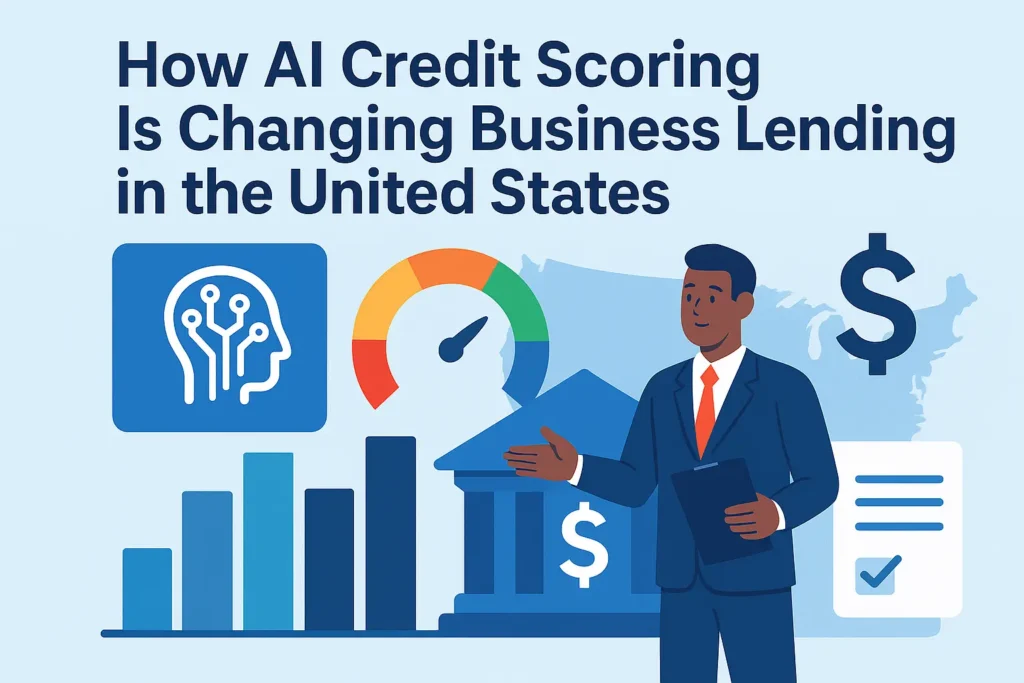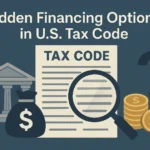Business lending in the United States has been undergoing a quiet revolution. The traditional methods of evaluating borrowers—mostly anchored on FICO scores—are giving way to something smarter, faster, and more inclusive: AI credit scoring USA. This new system is redefining how lenders view risk, and it’s opening doors for small businesses that were once overlooked. But what does this mean for entrepreneurs, lenders, and the overall economy? Let’s dive in.
Traditional Business Lending Challenges
For decades, the go-to method of determining whether a small business deserved credit relied on FICO scores and credit bureau reports. While effective to some extent, this model had significant flaws:
- Narrow scope – It focused too heavily on credit history while ignoring other financial signals.
- Slow process – Loan approvals often dragged on for weeks or even months.
- Exclusionary impact – Many small businesses, particularly startups and minority-owned enterprises, couldn’t qualify for funding due to limited or thin credit files.
The result? Many promising businesses were left stranded without the capital needed to grow.
Also Read: Green Financing: Loans and Incentives for Eco-Friendly U.S. Businesses in 2025
The Rise of AI Credit Scoring in the USA
Enter AI-driven credit scoring—a disruptive solution that leverages machine learning and massive datasets to paint a fuller picture of a business’s financial health. Instead of relying solely on credit scores, AI models consider:
- Business cash flow data
- Supplier payment histories
- Social media signals
- Customer reviews
- Banking transactions
By doing so, lenders can evaluate risk with far greater accuracy. This is why more U.S. banks and fintech companies are rapidly adopting AI-powered underwriting.
How AI Works in Small Business Lending
Here’s where it gets interesting. AI in small business lending doesn’t just crunch numbers—it interprets behavior.
- Machine Learning Algorithms – These systems learn from massive amounts of borrower data, continuously improving over time.
- Alternative Data Analysis – AI considers nontraditional factors like invoice payments, payroll records, and even e-commerce sales data.
- Real-Time Decisions – Instead of waiting weeks, small businesses can get approvals in hours or minutes.
This level of speed and personalization is changing the game.
AI vs. Traditional FICO Scoring
Traditional FICO scoring is like using a black-and-white photo to understand someone’s life. AI scoring, in contrast, is a full-color, 3D video.
- FICO Limitations – One-size-fits-all, limited history, and heavy reliance on past debt.
- AI Advantages – Context-rich, dynamic, and capable of predicting future performance.
Here’s the unique take: AI-driven underwriting isn’t just complementing FICO—it’s replacing it. Lenders now view AI as a more reliable lens into business stability and potential growth, something FICO simply can’t capture.
Benefits of AI Credit Scoring for Lender
- Speed: Instant approvals mean happier customers.
- Accuracy: Better insights lead to smarter lending decisions.
- Reduced Risk: By analyzing broader data, lenders can minimize defaults.
Banks no longer need to gamble on incomplete profiles—they can lend with confidence.
Benefits of AI Credit Scoring for Small Businesses
- More Opportunities – Startups with no traditional credit history can finally access funding.
- Fair Evaluations – Businesses judged on real-time performance, not just past debt.
- Better Terms – Flexible loans tailored to actual risk levels.
This creates a win-win scenario where entrepreneurs get the capital they deserve.
Real-World Applications in the USA
Fintech companies like Kabbage, BlueVine, and OnDeck have pioneered AI-based underwriting, while larger institutions like JPMorgan Chase and Wells Fargo are also embracing the technology.
Case in point: A small bakery in Texas was denied funding through traditional scoring but secured capital within hours via AI-based analysis that considered real-time sales data. Today, that bakery has expanded into multiple locations.
AI in Small Business Lending: Game Changer
This is where AI in small business lending shines brightest. It’s democratizing access to capital and empowering entrepreneurs who were long ignored by big banks. Minority-owned, women-owned, and first-time businesses are finally getting a fair shot.
AI is not just lending—it’s leveling the playing field.
Potential Risks and Concerns
Of course, AI is not perfect. Some of the biggest concerns include:
- Data Privacy – Sensitive business information must be protected.
- Algorithmic Bias – Poorly designed models could unintentionally discriminate.
- Regulatory Issues – Authorities are keeping a close watch to ensure fairness.
Regulatory Environment in the USA
The Consumer Financial Protection Bureau (CFPB) has already issued guidelines on AI in lending, focusing on transparency and fairness. As adoption grows, expect tighter oversight to prevent misuse while still encouraging innovation.
The Future of AI Credit Scoring in the USA
Looking ahead, AI credit scoring will become standard practice. We can expect:
- Wider adoption by mainstream banks
- Integration with blockchain-based financial records
- Smarter, real-time predictive models that evolve with businesses
In short, the future is AI-driven, and businesses that embrace it will thrive.
Preparing for an AI-Driven Lending Future
Both lenders and borrowers need to prepare:
- Lenders should invest in ethical AI systems that prioritize fairness.
- Small Businesses should focus on maintaining transparent digital records.
- Policy Makers must balance innovation with consumer protection.
When all three align, the lending ecosystem will flourish.
Also Read: How to Use a Business Line of Credit Wisely
Conclusion
AI credit scoring USA is transforming the way business lending works. By moving beyond the limitations of FICO scoring, AI offers a faster, fairer, and more dynamic lending environment. For small businesses, this means new opportunities. For lenders, it means smarter decisions. And for the economy, it means growth and innovation on an unprecedented scale.
FAQs
1. What is AI credit scoring?
AI credit scoring uses machine learning and alternative data to evaluate a borrower’s risk profile more accurately than traditional methods.
2. How does AI improve small business lending?
It speeds up approvals, considers real-time performance, and expands credit access for underserved businesses.
3. Will AI completely replace FICO scoring?
Yes, in many cases, AI is already replacing FICO because it offers a deeper and more accurate risk assessment.
4. Are there risks to using AI credit scoring?
Yes, risks include data privacy, algorithmic bias, and regulatory challenges, but these can be managed with proper oversight.
5. How can small businesses benefit from AI-driven lending?
They gain access to funding faster, even without strong credit history, and often receive better loan terms.


